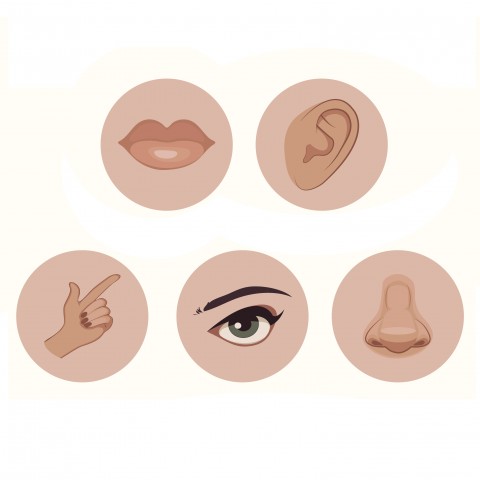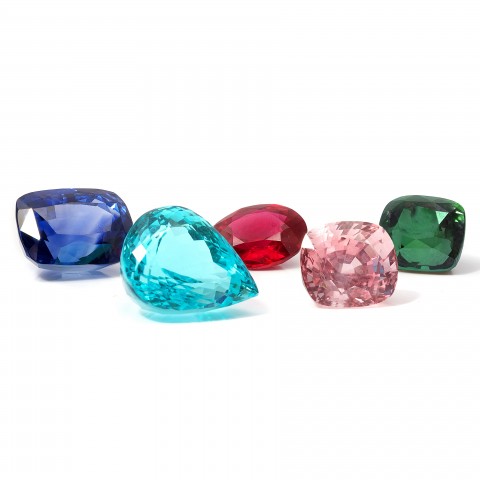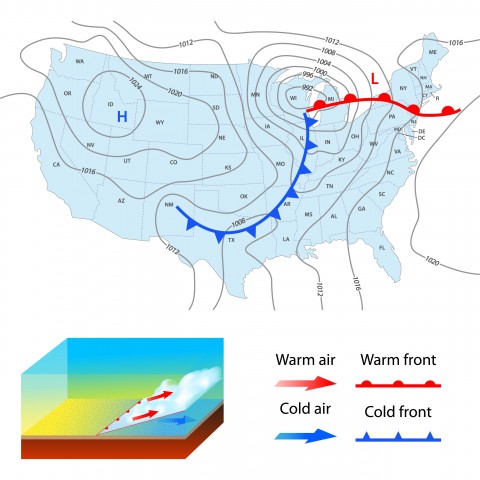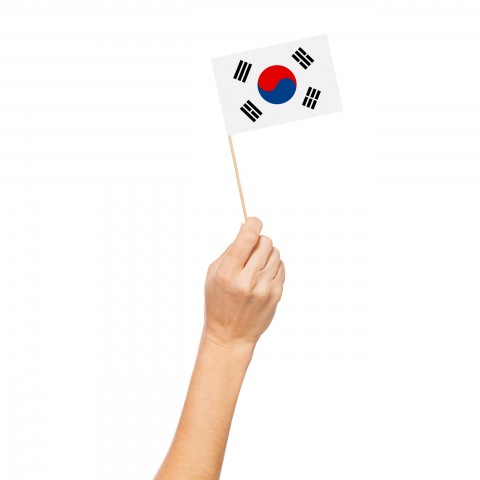Today we’re going to look learn Korean adjectives. There are a number of important rules that we’re going to go over, and afterwards we’ll introduce 100 Korean adjectives with more than 200 examples so that by the end of this article, you’ll be able to:
- Understand Korean adjective words in dictionary form and adjective form
- Change the dictionary form of an adjective into the adjective form
- Know how to use these forms correctly
- Memorize 100 adjectives in Korean that are commonly used by native speakers
Table of Contents
- How to Use Korean Adjectives
- Korean Adjectives to Describe Dimensions, Sizes, Distances, etc.
- Korean Adjectives to Describe Values
- Korean Adjectives to Describe Feeling & Sense
- Korean Adjectives to Describe Speed, Difficulty, Importance, etc.
- Korean Adjectives to Describe Colors
- Korean Adjectives to Describe Shapes
- Korean Adjectives to Describe Weather
- Korean Adjectives for Food: Describing Taste
- Korean Adjectives to Describe Situations
- Korean Adjectives to Describe Physical Traits
- Korean Adjectives to Describe a Person and Conditions
- How to Improve Your Korean Skills with KoreanClass101
1. How to Use Korean Adjectives
1- When an Adjective Comes before a Noun
Let’s say that you want to say: “I want to have a cat.” It’s easy, right?
고양이를 갖고 싶어요
Goyangireul gatgo sipeoyo.
“I want to have a cat.”
What if you want to describe the size of the cat? What if you want to say: “I want to have a small cat?”
The Korean word for “small” is 작다, therefore you may think that simply adding this word to the sentence will complete it. Well, the answer is NO. Remember that 작다 means “small,” but it’s the dictionary form. Therefore, you need to change it into an adjective. To do this, you need to eliminate ~다 and add ~ㄴ or ~은.
There are two important rules to remember in terms of how to conjugate Korean adjectives:
1) When the stem’s last syllable ends with a consonant, such as 낮다 (natda) or 젊다 (jeolda), add ~은 to the stem. For example:
| Vocabulary | Stem | Adjective form | Example | English |
|---|---|---|---|---|
| 낮다 (natda) | 낮 (nat) | 낮은 (najeun) | 낮은 책상 (najeun chaeksang) | “A low desk” |
| 젊다 (jeolda) | 젊 (jeol) | 젊은 (jeolmeun) | 젊은 여자 (jeolmeun yeoja) | “A young lady” |
2) When the stem’s last syllable ends with a vowel, such as 싸다 (ssada) or 이쁘다 (ippeuda), add ~ㄴ to the stem. For example:
| Vocabulary | Stem | Adjective form | Example | English |
|---|---|---|---|---|
| 싸다 (ssada) | 싸 (ssa) | 싼 (ssan) | 싼 물건 (ssan mulgeon) | “Cheap stuff” |
| 이쁘다 (ippeuda) | 이쁘(ippeu) | 이쁜 (ippeun) | 이쁜 여자 (ippeun yeoja) | “Pretty lady” |
Now, let’s have a look at the example from before. We want to add “small” into the sentence. The stem of 작다 (jakda) is 작 (jak), and the last syllable of its stem ends in a consonant: ㄱ. So in order to make it into an adjective form, you need to eliminate 다 (da) and add ~은 instead. So the whole sentence should look like this:
작은 고양이를 갖고 싶어요. [Correct]
Jageun goyangireul gatgo sipeoyo.
“I want a small cat.”
작다 고양이를 갖고 싶어요. [Incorrect]
Jakda goyangireul gatgo sipeoyo.
“Small cat I want.”
Now, the question is…how do you use 작다 (jakda) and 작은 (jageun), or 싸다 (ssada) and 싼 (ssan), in sentences correctly?
2- When an Adjective is Used after a Noun as a Predicate
1) An Adjective in a Dictionary Form
Let’s have a look at two examples:
이 고양이는 작다.
I goyangineun jakda.
“This cat is small.”
저기에 작은 고양이가 있어.
Jeogie jageun goyangiga isseo.
“There is a small cat.”
Do you see the difference? Dictionary forms are used after the noun, and adjective forms are used before nouns.
Also, remember that the dictionary form is usually used in writing.
- 이곳의 사람들의 평균 키는 165cm로 키가 매우 작다. (Written)
Igosui saramdeurui pyeonggyun kineun 165cmro kiga maeu jakda.
“The average height of people (here) is 165cm, which is lower than the average.”
2) An Adjective in a Speech Form
Here are various ways to say the same sentence, but in speech:
- 이곳의 사람들의 평균 키는 키가 매우 작습니다. [Formal]
Igosui saramdeurui pyeonggyun kineun kiga maeu jakseumnida. - 이곳의 사람들의 평균 키는 키가 매우 작은 것 같아요. [Casual-formal]
Igosui saramdeurui pyeonggyun kineun kiga maeu jageun geot gatayo. - 이곳의 사람들의 평균 키는 키가 매우 작아. [Informal]
Igosui saramdeurui pyeonggyun kineun kiga maeu jaga.
You need Korean conjugation rules to change adjectives into a speech form. Check out these Korean Conjugation Rules!
Now that we have the basics out of the way, let’s move forward to our Korean adjectives list!
2. Korean Adjectives to Describe Dimensions, Sizes, Distances, etc.
1- 크다 (keuda) — “To be Big”
Examples:
- 이 강아지는 크다. [writing]
I gangajineun keuda.
“This dog is big.” - 큰 강아지를 갖고 싶어요.
Keun gangajireul gatgo sipeoyo.
“I want to have a big dog.”
2- 작다 (jakda) — “To be Small”
Examples:
- 이 강아지는 작다. [writing]
I gangajineun jakda.
“This dog is small.” - 이 강아지는 작아요. [speaking]
I gangajineun jagayo.
“This dog is small.” - 작은 강아지를 갖고 싶어요. (standard speech level)
Jageun gangajireul gatgo sipeoyo.
“I want to have a small dog.”
3- 넓다 (neolda) — “To be Wide”
Examples:
- 이 집은 넓다. [writing]
I jibeun neolda.
“This house is very wide.” - 이 집은 넓어요. [speaking]
I jibeun neolbeoyo.
“This house is very wide.” - 넓은 집에서 살고 싶어요. [standard speech level]
Neolbeun jibeseo salgo sipeoyo.
“I want to live in a wide (big) house.”
4- 좁다 (jopda) — “To be Narrow”
Examples:
- 이 공간은 매우 좁다. [writing]
I gongganeun maeu jopda.
“This place is very narrow.” - 이곳은 너무 좁은 것 같아요. [speaking]
Igoseun neomu jobeun geot gatayo.
“I reckon this place is very narrow.” - 좁은 공간에 사람이 많이 있어요. (standard speech level)
Jobeun gonggane sarami mani isseoyo.
“There are too many people in a narrow space.”
5- 무겁다 (mugeopda) — “To be Heavy”
Examples:
- 이 짐은 매우 무겁다. [writing]
I jimeun maeu mugeopda.
“This baggage is extremely heavy.” - 이 짐은 너무 무거워요. [speaking]
I jimeun neomu mugeowoyo.
“This stuff is really heavy.” - 무거운 짐을 들면 허리가 아파요. [standard speech level]
Mugeoun jimeul deulmyeon heoriga apayo.
“If I lift heavy stuff, it gives me back pain.”
6- 가볍다 (gabyeopda) — “To be Light (in weight)”
Examples:
- 이 이불은 깃털처럼 가볍다. [writing]
I ibureun gitteolcheoreom gabyeopda.
“This blanket is as light as a feather.” - 어머, 이 고양이 진짜 가볍네. [speaking]
Eomeo, i goyangi jinjja gabyeomne.
“Oh my gosh, this cat is really light.” - 가벼운 짐만 있어요. [standard speech level]
Gabyeoun jimman isseoyo.
“I only have a light load.”
7- 높다 (nopda) — “High (in height)”
Examples:
- 이 굽은 매우 높다. [writing]
I gubeun maeu nopda.
“This heel is extremely high.” - 이 신발 너무 높아서 못 신겠어. [speaking]
I sinbal neomu nopaseo mot singesseo.
“I can’t wear these shoes because they (the heels) are too high.” - 굽이 높은 구두 신으면 발 안아파요? [standard speech level]
Gubi nopeun gudu sineumyeon bal anapayo?
“Don’t you feel pain when you wear high heels?”
8 – 낮다 (natda) — “To be Low (in height)”
Examples:
- 이 테이블의 높이는 낮다. [writing]
I teibeurui nopineun natda.
“The height of this table is low.” - 이 테이블의 높이는 낮아요. [speaking]
I teibeurui nopineun najayo.
“The height of this table is low.” - 내일 굽이 낮은 신발 신고 오세요. [standard speech level]
Naeil gubi najeun sinbal singo oseyo.
“Please wear flat shoes tomorrow.”
9 – 가깝다 (gakkapda) — “To be Close (in distance)”
Examples:
- 집에서 학교까지의 거리는 가깝다. [writing]
Jibeseo hakgyokkajiui georineun gakkapda.
“The house and school are close by each other.” - 집에서 학교까지는 가까워. [speaking]
Jibeseo hakgyokkajineun gakkawo
“From the house to the school is a short distance.” - 집은 역에서 가까운 곳에 있어요. [standard speech level]
Jibeun yeogeseo gakkaun gose isseoyo.
“My house is close to a station.”
10 – 멀다 (meolda) — “To be Far (in distance)”
Examples:
- 집에서 학교까지는 멀다. [writing]
Jibeseo hakgyokkajineun meolda.
“The distance between the house and the school is far.” - 우리 집에서 학교까지는 멀어. [speaking]
Uri jibeseo hakgyokkajineun meoreo.
“It’s far from the house to the school.” - 남자친구는 너무 먼 곳에 있어요. [standard speech level]
Namjachinguneun neomu meon gose isseoyo.
“My boyfriend lives far from where I live.”
11 – 길다 (gilda) — “To be Long”
Examples:
- 이 터널은 한국에서 가장 길다. [writing]
I teoneoreun hangugeseo gajang gilda.
“This tunnel is the longest in Korea.” - 이 터널은 한국에서 가장 길어. [speaking]
I teoneoreun hangugeseo gajang gireo.
“This tunnel is the longest in Korea.” - 길다는 긴 금발 머리를 갖고 있어. [standard speech level]
Gildaneun gin geumbal meorireul gatgo isseo.
“Gilda has long blonde hair.”
Do you want to improve your vocabulary for expressing quantity?
Check out 수량을 표현하는 방법 (suryangeul pyohyeonhaneun bangbeop) or “How to Express Quantity” on KoreanClass101!
3. Korean Adjectives to Describe Values
1- 좋다 (jota) — “To be Good”
Examples:
- 이 제품은 품질이 좋다. [writing]
I jepumeun pumjiri jota.
“The quality of this product is good.” - 이 제품은 품질이 좋은것 같아. [speaking]
I jepumeun pumjiri joeungeot gata.
“The quality of this product is good.” - 그 사람은 좋은 사람인것 같아. [standard speech level]
Geu sarameun joeun saramingeot gata.
“I think that he is a good person.”
2- 나쁘다 (nappeuda) — “To be Bad”
Examples:
- 이 제품의 품질은 나쁘다. [writing]
I jepumui pumjireun nappeuda.
“The quality of this product is bad.” - 이 제품의 품질은 나쁜 것 같아. [speaking]
I jepumui pumjireun nappeun geot gata.
“The quality of this product is bad.” - 아무도 나쁜 사람을 좋아하지 않아요. [standard speech level]
Amudo nappeun sarameul joahaji anayo.
“No one likes a bad person.”
3- 괜찮다 (gwaenchanta) — “To be Nice”
Examples:
- 이 곳의 분위기는 괜찮다. [writing]
I gosui bunwigineun gwaenchanta.
“The atmosphere of this place is nice.” - 여기 분위기 진짜 괜찮네. [speaking]
Yeogi bunwigi jinjja gwaenchanne.
“The atmosphere of this place is nice.” - 어디 괜찮은 장소있습니까? [formal speech level]
Eodi gwaenchaneun jangsoitseumnikka?
“Are there nice places?”
4- 끔찍하다 (kkeumjjikada) — “To be Terrible”
- Dictionary form: 끔찍하다 (kkeumjjikada)
- Adjective form: 끔찍한 (kkeumjjikan)
Examples:
- 생각만해도 끔찍하다. [writing]
Saenggangmanhaedo kkeumjjikada.
“It’s terrible just thinking about it.” - 생각만해도 끔찍해. [speaking]
Saenggangmanhaedo kkeumjjikae.
“It’s terrible just thinking about it.” - 끔찍한 광경을 보고 말았습니다. [formal speech level]
Kkeumjjikan gwanggyeongeul bogo maratseumnida.
“I witnessed a terrible sight.”
5- 놀라다 (nollada) — “To be Surprised”
Examples:
- 놀라서 소리 쳤다. [writing]
Nollaseo sori chyeotda.
“I screamed in surprise.” - 놀라서 소리 쳤어. [speaking]
Nollaseo sori chyeosseo.
“I screamed in surprise.” - 그건 진짜 놀라운 업적인것 같아. [standard speech level]
Geugeon jinjja nollaun eopjeogingeot gata.
“I think it is such an amazing achievement.”
4. Korean Adjectives to Describe Feeling & Sense
1- 심심하다 (simsimhada) — “To be Bored”
- Dictionary form: 심심하다 (simsimhada)
- Adjective form: 심심한 (simsimhan)
- The opposite of “feeling bored” is “feeling entertained,” which is 재미있다 (jaemiitda).
Examples:
- 할일이 없어서 심심하다. [writing]
Hariri eopseoseo simsimhada.
“I’m bored because there is nothing to do.” - 할일이 없어서 심심해. [speaking]
Hariri eopseoseo simsimhae.
“I’m bored because there is nothing to do.” - 심심해 죽겠어. [standard speech level]
Simsimhae jukgesseo.
“I’m bored to death.”
2- 질투하다 (jiltuhada) — “To be Jealous”
- Dictionary form: 질투하다 (jiltuhada)
- Adjective form: 질투하는 (jiltuhaneun)
Examples:
- 질투심을 자극하다. [writing]
Jiltusimeul jageukada.
“To cause someone’s jealousy.” - 너 지금 내 친구 질투하니? [speaking]
Neo jigeum nae chingu jiltuhani?
“Are you jealous of my friends right now?” - 너 지금 나 질투하는 거야? [standard speech level]
Neo jigeum na jiltuhaneun geoya?
“Are you jealous of me now?”
3- 무관심하다 (mugwansimhada) — “To be Indifferent / Ignorant”
- Dictionary form: 무관심하다 (mugwansimhada)
- Adjective form: 무관심한 (mugwansimhan)
Examples:
- 공부에 전혀 무관심하다. [writing]
Gongbue jeonhyeo mugwansimhada.
“He doesn’t care about the studies.” - 공부에 전혀 무관심해. [speaking]
Gongbue jeonhyeo mugwansimhae.
“He doesn’t care about the studies.” - 공부에 무관심한 아들때문에 화가나. [standard speech level]
Gongbue mugwansimhan adeulttaemune hwagana.
“I’m upset about the fact that my son doesn’t show any interest in his studies.”
4- 생각이 깊다 (saenggagi gipda) — “To be Thoughtful”
- Dictionary form: 생각이 깊다 (saenggagi gipda)
- Adjective form: 생각이 깊은 (saenggagi gipeun)
Examples:
- 수미는 생각이 깊다. [writing]
Sumineun saenggagi gipda.
“Sumi is a considerate (thoughtful) person.” - 수미는 생각이 깊어. [speaking]
Sumineun saenggagi gipeo.
“Sumi is a considerate (thoughtful) person.” - 내 생각에는 수미는 생각이 정말 깊은 사람이야. [standard speech level]
Nae saenggageneun sumineun saenggagi jeongmal gipeun saramiya.
“I think that Sumi is a considerate (thoughtful) person.”
5- 편안하다 (pyeonanhada) — “To be Comfortable”
- Dictionary form: 편안하다 (pyeonanhada)
- Adjective form: 편안한 (pyeonanhan)
Examples:
- 이 소파는 편안하다. [writing]
I sopaneun pyeonanhada.
“This sofa is comfortable.” - 이 소파는 편안해. [speaking]
I sopaneun pyeonanhae.
“This sofa is comfortable.” - 편안한 신발을 신으세요. [standard speech level]
Pyeonanhan sinbareul sineuseyo.
“Please wear comfortable shoes.”
6- 스트레스 받다 (seuteureseu batda) — “To feel Stressed”
- Dictionary form: 스트레스 받다 (seuteureseu batda)
- Adjective form: 스트레스 받는 (seuteureseu banneun)
Examples:
- 야근이 많아서 스트레스 받다. [writing]
Yageuni manaseo seuteureseu batda.
“To be stressed because of working overtime” - 야근이 너무 많아서 스트레스 받고 있어. [speaking]
Yageuni neomu manaseo seuteureseu batgo isseo.
“I am feeling very stressed because of working overtime.” - 무슨일 있어? 스트레스 받는 일있어? [standard speech level]
Museunil isseo? Seuteureseu banneun irisseo?
“What’s wrong? Did something happen to make you feel stressed?”
7- 아프다 (apeuda) — “To feel Sick / In pain”
- Dictionary form: 아프다 (apeuda)
- Adjective form: 아픈 (apeun)
Examples:
- 많이 걸어서 다리가 아프다. [writing]
Mani georeoseo dariga apeuda.
“Because I walked a lot, I have pain in my leg.” - 어제 많이 걸어서 다리가 아프네. [speaking]
Eoje mani georeoseo dariga apeune.
“Because I walked a lot, I have pain in my leg.” - 우리 고양이가 아픈 것 같아요. [standard speech level]
Uri goyangiga apeun geot gatayo.
“I think my cat is sick.”
8- 상냥하다 (sangnyanghada) — “To be Good-humored”
- Dictionary form: 상냥하다 (sangnyanghada)
- Adjective form: 상냥한 (sangnyanghan)
Examples:
- 우체국에서 일하는 사람들은 상냥하다. [writing]
Uchegugeseo ilhaneun saramdeureun sangnyanghada.
“People who work at the post office are kind (good-humored).” - 우체국에서 일하는 사람들은 상냥해. [speaking]
Uchegugeseo ilhaneun saramdeureun sangnyanghae.
“People who work at the post office are kind (good-humored).” - 상냥한 성격의 아이로 키우고 싶어요. [standard speech level]
Sangnyanghan seonggyeogui airo kiugo sipeoyo.
“I want to raise my child to have a good-humored personality.”
9- 의심이 많다. (uisimi manta) — “To be Suspicious”
- Dictionary form: 의심이 많다. (uisimi manta)
- Adjective form: 의심 많은 (uisim maneun)
Examples:
- 경찰은 항상 의심이 많다. [writing]
Gyeongchareun hangsang uisimi manta.
“Police men are always suspicious of people.” - 경찰은 항상 의심이 많은것 같아. [speaking]
Gyeongchareun hangsang uisimi maneungeot gata.
“I think policemen are always suspicious of people.” - 강아지는 처음 보는 사람에게 의심이 많은 것 같아요. [standard speech level]
Gangajineun cheoeum boneun saramege uisimi maneun geot gatayo.
“I think that dogs are usually suspicious of strangers.”
10- 거만하다 (geomanhada) — “To be Arrogant”
- Dictionary form: 거만하다 (geomanhada)
- Adjective form: 거만한 (geomanhan)
Examples:
- 그 사람의 행동은 거만하다. [writing]
Geu saramui haengdongeun geomanhada.
“His attitude is arrogant.” - 그 사람의 행동은 거만해. [speaking]
Geu saramui haengdongeun geomanhae.
“His attitude is arrogant.” - 거만한 표정으로 나를 쳐다봤어. [standard speech level]
Geomanhan pyojeongeuro nareul chyeodabwasseo.
“He looks at me with this arrogant look.”
5. Korean Adjectives to Describe Speed, Difficulty, Importance, etc.
1- 어렵다 (eoryeopda) — “To be Difficult”
- Dictionary form: 어렵다 (eoryeopda)
- Adjective form: 어려운 (eoryeoun)
Examples:
- 오늘의 수학문제는 어려웠다. [writing]
Oneurui suhangmunjeneun eoryeowotda.
“Today’s math question was difficult.” - 오늘의 수학문제는 어려웠어. [speaking]
Oneurui suhangmunjeneun eoryeowosseo.
“Today’s math question was difficult.” - 이렇게 어려운 문제를 어떻게 풀 수 있었어요? [formal speech level]
Ireoke eoryeoun munjereul eotteoke pul su isseosseoyo?
“How did you solve such a difficult question?”
2- 쉽다 (swipda) — “To be Easy”
Examples:
- 이 문제는 쉽다. [writing]
I munjeneun swipda.
“This problem is easy (to solve).” - 이 문제는 쉬워. [speaking]
I munjeneun swiwo.
“This problem is easy (to solve).” - 이렇게 쉬운 문제를 풀 수 없다는 게 말이 안돼. [standard speech level]
Iireoke swiun munjereul pul su eopdaneun ge mari andwae.
“It does not make sense that you can’t solve such an easy problem.”
3- 빠르다 (ppareuda) — “To be Fast”
- Dictionary form: 빠르다 (ppareuda)
- Adjective form: 빠른 (ppareun)
Examples:
- 토끼는 거북이 보다 빠르다. [writing]
Tokkineun geobugi boda ppareuda.
“Rabbits are faster than turtles.” - 토끼는 거북이 보다 빨라. [speaking]
Tokkineun geobugi boda ppalla.”
Rabbits are faster than turtles.” - 세상에서 가장 빠른 동물은 무엇일까요? [formal speech level]
Sesangeseo gajang ppareun dongmureun mueosilkkayo?
“What is the fastest animal in the world?”
4- 느릿느릿하다 (neurinneurithada) — “To be Slow”
- Dictionary form: 느릿느릿하다 (neurinneurithada)
- Adjective form: 느릿느릿한 (neurinneurithan)
- Usually used to convey a negative meaning
- This is used to criticize someone’s behavior
Examples:
- 그 남자의 걸음걸이는 느릿느릿하다. [writing]
Geu namjaui georeumgeorineun neurinneurithada.
“This man’s walk is slow.” - 그 남자의 걸음걸이는 느릿느릿해요. [speaking]
Geu namjaui georeumgeorineun neurinneurithaeyo.
“This man’s walk is slow.” - 느릿느릿한 걸음걸이 좀 고칠 수 없겠니? [standard speech level]
Neurinneurithan georeumgeori jom gochil su eopgenni?
“Can you fix the way you walk (slowly)?”
5- 복잡하다 (bokjaphada) — “To be Complicated”
- Dictionary form: 복잡하다 (bokjaphada)
- Adjective form: 복잡한 (bokjapan)
Examples:
- 머리가 복잡하다. [writing]
Meoriga bokjapada.
“I have a lot on my mind.” - 머리가 복잡해. [speaking]
Meoriga bokjaphae.
“I have a lot on my mind.” - 복잡한 상황이라 설명할 수가 없어. [standard speech level]
Bokjapan sanghwangira seolmyeonghal suga eopseo.
“I can’t explain to you right now because it is a complicated situation.”
6- 단순하다 (dansunhada) — “To be Simple”
Examples:
- 이것은 단순한 돈 문제가 아니다. [writing]
Igeoseun dansunhan don munjega anida.
“It’s not simply a question of money.” - 이것은 단순한 돈 문제가 아니야. [speaking]
Igeoseun dansunhan don munjega aniya.
“It’s not simply a question of money.” - 리포트를 쓰는 것은 단순한 일이 아니야. [standard speech level]
Ripoteureul sseuneun geoseun dansunhan iri aniya.
“Writing a report is not a simple task.”
7- 간단하다 (gandanhada) — “To be Simple / Easy”
Examples:
- 이 설명서는 읽기 간단하다. [writing]
I seolmyeongseoneun ilgi gandanhada.
“This explanation is simple to read.” - 이 설명서는 읽기 간단해. [speaking]
I seolmyeongseoneun ilgi gandanhae.
“This explanation is simple to read.” - 지금은 간단한 일만 하고 있어요. [standard speech level]
Jigeumeun gandanhan ilman hago isseoyo.
“I’m doing a simple task right now.”
8- 느리다 (neurida) — “To be Slow”
- Dictionary form: 느리다 (neurida)
- Adjective form: 느린 (neurin)
Examples:
- 이 곳의 서비스는 느리다. [writing]
I gosui seobiseuneun neurida.
“The service here is slow (inefficient).” - 이 곳의 서비스는 느려요. [speaking]
I gosui seobiseuneun neuryeoyo.
“The service here is slow (inefficient).” - 할아버지는 느린 걸음으로 걸어갑니다. [formal speech level]
Harabeojineun neurin georeumeuro georeogamnida.
“An old man walks at a slow pace.”
9- 결정적이다 (gyeoljeongjeogida) — “To be Crucial”
- Dictionary form: 결정적이다 (gyeoljeongjeogida)
- Adjective form: 결정적인 (gyeoljeongjeogin)
Examples:
- 이 순간은 결정적이었다. [writing]
I sunganeun gyeoljeongjeogieotda.
“This moment was crucial.” - 이 순간은 결정적이었어. [speaking]
I sunganeun gyeoljeongjeogieoseo.
“This moment was crucial.” - 결정적인 순간에 없었어. [standard speech level]
Gyeoljeongjeogin sungane eopseosseo.
“You were not there in the crucial moment.”
10- 다양하다 (dayanghada) — “Various”
Examples:
- 과일 종류가 다양하다. [writing]
Gwail jongnyuga dayanghada.
“There are different kinds of fruits.” - 과일 종류가 다양해. [speaking]
Gwail jongnyuga dayanghae.
“There are different kinds of fruits.” - 저희는 다양한 서비스를 제공합니다. [formal speech level]
Jeohuineun dayanghan seobiseureul jegonghamnida.
“We offer various services.”
6. Korean Adjectives to Describe Colors
1- 빨갛다 (ppalgatta) — “Red”
- Dictionary form: 빨갛다 (ppalgatta)
- Adjective form: 빨간 (ppalgan)
Example:
- 저는 빨간색을 좋아해요. [standard speech level]
Jeoneun ppalgansaegeul joahaeyo.
“I like red (color).”
2- 하얗다 (hayatta) — “White”
- Dictionary form: 하얗다 (hayatta)
- Adjective form: 하얀 (hayan)
Examples:
- 하얀 새들이 날아가고 있다. [standard speech level]
Hayan saedeuri naragago itda.
“White birds are flying.”
3- 파랗다 (paratta) — “Blue”
- Dictionary form: 파랗다 (paratta)
- Adjective form: 파란 (paran)
Example:
- 우리집 고양이는 파란 눈을 가지고 있어요. [standard speech level]
Urijip goyangineun paran nuneul gajigo isseoyo.
“My cat has blue eyes.”
4- 어둡다 (eodupda) — “Dark”
Examples:
- 하늘이 어둡다. [writing]
Haneuri eodupda.
“The sky is dark.” - 하늘이 어둡네요. [speaking]
Haneuri eodumneyo.
“The sky is dark.” - 저는 어두운 색의 옷을 자주 입어요. [standard speech level]
Jeoneun eoduun saegui oseul jaju ibeoyo.
“I wear dark-colored clothes often.”
5- 밝다 (balda) — “Light/Bright”
- Dictionary form: 밝다 (balda)
- Adjective form: 밝은 (balgeun)
Examples:
- 하늘이 밝다. [writing]
Haneuri balda.
“The sky is bright.” - 하늘이 밝아요. [speaking]
Haneuri balgayo.
“The sky is bright.” - 여름에는 밝은 색의 옷을 많이 입어요. [standard speech level]
Yeoreumeneun balgeun saegui oseul mani ibeoyo.
“I wear light-colored clothes a lot during the summer.”
7. Korean Adjectives to Describe Shapes
1- 동그랗다 (donggeuratta) — “To be Round”
- Dictionary form: 동그랗다 (donggeuratta)
- Adjective form: 동그란 (donggeuran)
Example:
- 강아지는 동그란 눈을 가졌어요. [casual speech level]
Gangajineun donggeuran nuneul gajyeosseoyo.
“Puppies have round eyes.”
2- 세모낳다 (semonatta) — “To be Triangular”
- Dictionary form: 세모낳다 (semonatta)
- Adjective form: 세모난 (semonan)
Example:
- 고양이는 세모난 귀를 가졌어. [standard speech level]
Goyangineun semonan gwireul gajyeotseo.
“Cats’ ears look like triangles.”
3- 뾰족하다 (ppyojokhada) — “To be Sharp”
- Dictionary form: 뾰족하다 (ppyojokhada)
- Adjective form: 뾰족한 (ppyojokan)
Examples:
- 장미의 가시는 뾰족하다. [writing]
Jangmiui gasineun ppyojokada.
“The thorns of roses are pointy (sharp).” - 장미의 가시는 뾰족해. [speaking]
Jangmiui gasineun ppyojokahae.
“The thorns of roses are pointy (sharp).” - 수미의 턱은 뾰족해. [standard speech level]
Sumiui teogeun ppyojokahae.
“Sumi’s chin is sharp (pointy).”
4- 네모낳다 (nemonatta) — “To be Square”
- Dictionary form: 네모낳다 (nemonatta)
- Adjective form: 네모난 (nemonan)
Examples:
- 저는 네모난 지갑을 찾고 있어요. [standard speech level]
Jeoneun nemonan jigabeul chatgo isseoyo.
“I am looking for a square wallet.”
5- 질기다 (jilgida) — “To be Tough”
- Dictionary form: 질기다 (jilgida)
- Adjective form: 질긴 (jilgin)
Examples:
- 이 가죽은 질기다. [writing]
I gajugeun jilgida.
“This leather is tough.” - 이 가죽은 질겨. [speaking]
I gajugeun jilgeo.
“This leather is tough.” - 이 지갑은 질긴 가죽으로 만들어져있습니다. [formal speech level]
I jigabeun jilgin gajugeuro mandeureojyeoitseumnida.
“This wallet is made of tough leather.”
6- 부드럽다 (budeureopda) — “To be Soft”
Example:
- 이 천은 부드럽다. [writing]
I cheoneun budeureopda.
“This fabric is soft.” - 이 천은 부드러워. [speaking]
I cheoneun budeureoweo.
“This fabric is soft.” - 이 가방은 부드러운 천으로 만들어졌습니다. [formal speech level]
I gabangeun budeureoun cheoneuro mandeureojyeoitseumnida.
“This bag is made of soft cloth.”
8. Korean Adjectives to Describe Weather
1- 눈이 내리다 (nuni naerida) — “Being Snowy”
- Dictionary form: 눈이 내리다 (nuni naerida)
- Adjective form: 눈이 내리는 (nuni naerineun)
Examples:
- 내일 저녁 눈이 내린데. [speaking]
Naeil jeonyeok nuni naerinde.
“It seems like it will snow tomorrow.” - 어린이들은 눈이 내리는 날을 즐깁니다. [formal speech]
Eorinideureun nuni naerineun nareul jeulgimnida.
“Children enjoy the snowy days.”
2- 맑다 (malda) — “To be Clear”
Examples:
- 이 물은 맑다. [writing]
I mureun malda.
“The water is very clean (clear).” - 이 물은 맑아. [speaking]
I mureun malga.
“The water is very clean (clear).” - 맑은 물에는 물고기가 모이지 않아. [standard speech level]
Malgeun mureneun mulgogiga moiji ana.
“A clear stream is avoided by fish.”
3- 상쾌하다 (sangkwaehada) — “To be Fresh”
Examples:
- 공기가 상쾌하다. [writing]
Gongiga sangkwaehada.
“The air is fresh.” - 공기가 상쾌해. [speaking]
Gongiga sangkwaehae.
“The air is fresh.” - 상쾌한 공기를 들이마시는 것은 좋아. [standard speech level]
Sangkwaehan gonggireul deurimasineun geoseun joa.
“It is good to breathe some fresh air.”
4- 비가 내리다 (biga naerida) — “Rainy”
- Dictionary form: 비가 내리다 (biga naerida)
- Adjective form: 비가 내리는 (biga naerineun)
Examples:
- 지금 비가 내리고 있어. [speaking]
Jigeum biga naerigo isseo.
“It’s raining right now.” - 여름에는 비가 내리는 날이 많다. [standard speech level]
Yeoreumeneun biga naerineun nari manta.
“There are many rainy days during the summer.”
5- 화창하다 (hwachanghada) — “Sunny”
Examples:
- 오늘의 날씨는 화창하다. [writing]
Oneurui nalssineun hwachanghada.
“Today is sunny.” - 오늘 날씨 정말 화창하네. [speaking]
Oneul nalssi jeongmal hwachanghane.
“Today is very sunny.” - 오늘의 날씨는 때때로 구름이 끼는 화창한 날씨입니다. [standard speech level]
Oneurui nalssineun ttaettaero gureumi kkineun hwachanghan nalssiimnida.
“Today’s weather is sunny with occasional clouds.”
6- 안개가 끼다 (angaega kkida) — “Foggy”
- Dictionary form: 안개가 끼다 (angaega kkida)
- Adjective form: 안개가 낀 (angaega kkin)
Example:
- 안개가 낀 날은 운전하기 힘들어요. [standard speech level]
Angaega kkin nareun unjeonhagi himdeureoyo.
“It is difficult to drive on a foggy day.”
7- 바람이 많이 분다 (barami mani bunda) — “Windy”
- Dictionary form: 바람이 많이 분다 (barami mani bunda)
- Adjective form: 바람이 많이 부는 (barami mani buneun)
Examples:
- 오늘은 바람이 많이 분다. [writing]
Oneureun barami mani bunda.
“It is windy today.” - 오늘은 바람이 많이 부네 [speaking]
Oneureun barami mani bune.
“It is windy today.” - 바람이 많이 부는 날에 치마를 입지 않는 것이 좋아. [standard speech level]
Barami mani buneun nare chimareul ipji anneun geosi joa.
“It is better off not to wear a skirt on a windy day.”
8 – 변덕스럽다 (byeondeokseuropda) — “Unstable (weather)”
- Dictionary form: 변덕스럽다 (byeondeokseuropda)
- Adjective form: 변덕스러운 (byeondeokseureoun)
Examples:
- 날씨가 변덕스럽다. [writing]
Nalssiga byeondeokseureopda.
“The weather is unstable.” - 날씨가 변덕스럽네. [speaking]
Nalssiga byeondeokseureomne.
“The weather is unstable.” - 변덕스러운 날씨 때문에 캠핑을 가지 못했어요. [standard speech level]
Byeondeokseureoun nalssi ttaemune kaempingeul gaji mothatatseoyo.
“They couldn’t go camping because of the changeable (unstable) weather.”
9- 건조하다 (geonjohada) — “Dry”
- Dictionary form: 건조하다 (geonjohada)
- Adjective form: 건조한 (geonjohan)
Examples:
- 사막은 건조하다. [writing]
Samageun geonjohada.
“The desert is dry.” - 사막은 건조해. [speaking]
Samageun geonjohae.
“The desert is dry.” - 사막에는 비가 내리지 않아 극도로 건조해요. [standard speech level]
Samageneun biga naeriji ana geonjohaeyo.
“It rarely rains in the desert, therefore the weather is extremely dry.”
10- 습도가 높다 (seupdoga nopda) — “Humid”
- Dictionary form: 습도가 높다 (seupdoga nopda)
- Adjective form: 습도가 높은 (seupdoga nopeun)
Examples:
- 여름은 습도가 높다. [writing]
Yeoreumeun seupdoga nopda.
“It is humid in summer.” - 여름은 습도가 높아. [speaking]
Yeoreumeun seupdoga nopa.
“It is humid in summer.” - 비가 오는 날에는 습도가 높아져. [standard speech level]
Biga oneun nareneun seupdoga nopajyeo.
“The humidity becomes higher on a rainy day.”
11- 시원하다 (siwonhada) — “Cool”
- Dictionary form: 시원하다 (siwonhada)
- Adjective form: 시원한 (siwonhan)
Examples:
- 날씨가 시원하다. [writing]
Nalssiga siwonhada.
“The weather is cool.” - 날씨가 시원하네. [speaking]
Nalssiga siwonhane.
“The weather is cool.” - 여름에는 시원한 아이스크림이 먹고 싶어지네. [standard speech level]
Yeoreumeneun siwonhan aiseukeurimi meokgo sipeojine.
“I want to eat cold (cool) ice cream during the summer.”
12- 덥다 (deopda) — “Hot”
- Dictionary form: 덥다 (deopda)
- Adjective form: 더운 (deoun)
Examples:
- 오늘 날씨는 정말 덥다. [writing]
Oneul nalssineun jeongmal deopda.
“It’s really hot today.” - 오늘 날씨는 정말 덥네. [speaking]
Oneul nalssineun jeongmal deopne.
“It’s really hot today.” - 더운 날씨가 그립다. [standard speech level]
Deoun nalssiga geuripda.
“I miss the hot weather.”
9. Korean Adjectives for Food: Describing Taste
1 – 달다 (dalda) — “Sweet”
Examples:
- 화이트 초콜릿은 달다. [writing]
Hwaiteu chokolliseun dalda.
“White chocolate is sweet.” - 화이트 초콜릿은 달아. [speaking]
Hwaiteu chokolliseun dala.
“White chocolate is sweet.” - 우와, 이 음식에서 단맛이 난단 말이야? [standard speech level]
Uwa, i eumsigeseo danmasi nandan mariya?
“Wow, how come this food tastes sweet?”
2 – 짜다 (jjada) — “Salty”
Examples:
- 라면에서 짠맛이 나다. [writing]
Ramyeoneseo jjanmasi nada.
“This noodle tastes too salty.” - 라면에서 짠맛이 나. [speaking]
Ramyeoneseo jjanmasi na.
“This noodle tastes too salty.” - 소금의 맛은 짜다. [standard speech level]
Sogeumui maseun jjada.
“The taste of salt is salty.”
3 – 싱겁다 (singgeopda) — “Bland / Tasteless”
- Dictionary form: 싱겁다 (singgeopda)
- Adjective form: 싱거운 (singgeoeun)
Examples:
- (맛이) 싱겁다. [writing]
(Masi) singgeopda.
“It’s tasteless.” - 이 라면은 조금 싱겁네. 소금 조금 더 넣자. [speaking]
I ramyeoneun jogeum singgeomne. Sogeum jogeum deo neocha.
“This noodle tastes bland. Let’s add some more salt.” - 너무 싱거운데? 맛없다야. [casual speech level]
Neomu singgeounde? Maseopdaya.
“It tastes bland! It’s not delicious.”
4 – 맵다 (maepda) — “Spicy”
Examples:
- 한국 음식은 맵다. [writing]
Hanguk eumsigeun maepda.
“Korean foods are spicy.” - 이 라면 엄청 맵네. [speaking]
I ramyeon eomcheong maemne
“This noodle is really spicy.” - 저는 매운 음식 좋아해요. 매운 음식 잘 드세요? [formal speech level]
Jeoneun maeun eumsik joahaeyo. Maeun eumsik jal deuseyo?
“I like spicy food. Do you like spicy food?”
5 – 비리다 (birida) — “Fishy”
- Dictionary form: 비리다 (birida)
- Adjective form: 비린 (birin)
Example:
- 생선에서 비린내가 납니다. [formal speech level]
Saengseoneseo birinnaega napnida.
“This fish smells fishy (doesn’t smell fresh).”
6 – 느끼하다 (neukkihada) — “Greasy”
- Dictionary form: 느끼하다 (neukkihada)
- Adjective form: 느끼한 (neukkihan)
Examples:
- 기름이 너무 많아 느끼하다. [writing]
Gireumi neomu mana neukkihada.
“It’s too oily, therefore it is greasy.” - 치즈맛은 느끼한것 같아. [casual speaking]
Chijeumaseun neukkihangeot gata.
“I reckon the taste of cheese is very greasy.” - 고기에 기름기가 너무 많아서 느끼해요. [standard speech level]
Gogie gireumgiga neomu manaseo neukkihaeyo.
“The meat is too greasy.”
7 – 바삭바삭하다 (basakbasakhada) — “Crispy”
- Dictionary form: 바삭바삭하다 (basakbasakhada)
- Adjective form: 바삭바삭한 (basakbasakan)
Examples:
- 튀김은 바삭바삭하다. [writing]
Twigimeun basakbasakada
“Fries are crispy.” - 튀김은 바삭바삭해. [speaking]
Twigimeun basakbasakahae.
“Fries are crispy.” - 바삭바삭한 치킨이 먹고 싶어요. [standard speech level]
Basakbasakan chikini meokgo sipeoyo.
“I want to eat some crispy chicken.”
8 – 역겹다 (yeokgyeopda) — “Disgusting”
- Dictionary form: 역겹다 (yeokgyeopda)
- Adjective form: 역겨운 (yeokgyeoun)
Examples:
- 쓰레기를 보면 역겹다. [writing]
Sseuregireul bomyeon yeokgyeopda.
“I feel disgusted when I look at trash.” - 쓰레기를 보면 너무 역겨워. [speaking]
Sseuregireul bomyeon neomu yeokgyeowo.
“I feel disgusted when I look at trash.” - 우웩! 이 역겨운 냄새는 어디서 나오는거야? [casual speaking]
Uwek! I yeokgyeoun naemsaeneun eodiseo naoneungeoya?
“Ew! Where is this disgusting smell coming from?”
9 – 발효되다 (balhyodweda) — “Fermented”
- Dictionary form: 발효되다 (balhyodweda)
- Adjective form: 발효된 (balhyodoen)
Example:
- 김치는 발효된 음식이에요. [standard speech level]
Gimchineun balhyodoen eumsigiyeyo.
“Kimchi is fermented food.”
10 – 쫄깃쫄깃하다 (jjolgitjjolgithada) — “Chewy”
- Dictionary form: 쫄깃쫄깃하다 (jjolgitjjolgithada)
- Adjective form: 쫄깃쫄깃한 (jjolgitjjolgithan)
Examples:
- 이 떡은 쫄깃쫄깃하다. [writing]
I tteogeun jjolgitjjolgithada.
“This rice cake has a chewy texture.” - 이 떡 쫄깃쫄깃하니? [speaking]
I tteok jjolgitjjolgithani?
“Does this rice cake have a chewy texture?” - 이 떡은 쫄깃쫄깃해서 맛있다. [standard speech level]
I tteogeun jjolgitjjolgithaeseo masitda.
“This rice cake is delicious because it is chewy.”
11 – 김빠지다 (gimppajida) — “Flat”
- Dictionary form: 김빠지다 (gimppajida)
- Adjective form: 김빠진 (gimppajin)
Examples:
- 콜라의 김이 빠지다. [writing]
Kollaui gimi ppajida.
“The cola is flat.” - 콜라의 김이 빠졌네. [speaking]
Kollaui gimi ppajyeotne.
“The cola is flat.” - 김빠진 콜라로 청소할 수 있어요. [standard speech level]
Gimppajin kollaro cheongsohal su isseoyo.
“You can clean the house with flat cola.”
12 – 신선하지 않다 (seonseonhaji anta) — “Stale”
- Dictionary form: 신선하지 않다 (seonseonhaji anta)
- Adjective form: 신선하지 않은 (sinseonhaji aneun)
Examples:
- 이 빵은 더이상 신선하지 않다. [writing]
I ppangeun deoisang sinseonhaji anta.
“This bread is no longer fresh (stale).” - 이 빵은 더이상 신선하지 않아. [speaking]
I ppangeun deoisang sinseonhaji ana.
“This bread is no longer fresh (stale).” - 신선하지 않은 빵은 먹지 않는 편이 나아요. [standard speech level]
Sinseonhaji aneun ppangeun meokji anneun pyeoni nayo.
“It’s better not to eat stale bread.”
13 – 맛없다 (maseopda) — “Unsavory”
- Dictionary form: 맛없다 (maseopda)
- Adjective form: 맛없는 (maseomneun)
Examples:
- 너무 맛없다. [writing]
Neomu maseopda.
“It’s unsavory.” - 너무 맛없어. [speaking]
Neomu maseopda.
“It’s unsavory.” - 그런 맛없는 요리는 처음이야. [standard speech level]
Geureon maseomneun yorineun cheoeumiya.
“I’ve never had such a tasteless dish in my life.”
10. Korean Adjectives to Describe Situations
1 – 위험하다 (wiheomhada) — “Dangerous”
Examples:
- 공사장은 항상 위험하다. [writing]
Gongsajangeun hangsang wiheomhada.
“Construction sites are always dangerous.” - 공사장은 항상 위험해. [speaking]
Gongsajangeun hangsang wiheomhae.
“Construction sites are always dangerous.” - 위험한 장소에는 가지말아요. [standard speech level]
Wiheomhan jangsoeneun gajimarayo.
“Don’t go to a dangerous place.”
2- 재미있다 (jaemiitda) — “Fun”
Examples:
- 이 만화는 재미있다. [writing]
I manhwaneun jaemiitda.
“This cartoon is fun (to watch).” - 이 만화 진짜 재미있다. [speaking]
I manhwa jinjja jaemiitda.
“This cartoon is really fun (to watch).” - 뭐 재미있는 영화 없나? [standard speech level]
Mwo jaemiinneun yeonghwa eomna?
“Are there any interesting (fun) films (to watch)?”
3 – 재미없다 (jaemieopda) — “Uninteresting”
- Dictionary form: 재미없다 (jaemieopda)
- Adjective form: 재미없는 (jaemieomneun)
Examples:
- 이 영화는 재미없다. [writing]
I yeonghwa jinjja jaemieopda.
“The film is uninteresting.” - 이 영화 진짜 재미없어. [speaking]
I yeonghwa jinjja jaemieopseo.
“The film is uninteresting.” - 지금 하고 있는 아르바이트는 정말 재미없는 것 같아. [standard speech level]
Jigeum hago inneun areubaiteuneun jeongmal jaemieomneun geot gata.
“My current part-time job is not interesting at all.”
4 – 조용하다 (joyonghada) — “Quiet”
Examples:
- 늦은 저녁의 버스 정류장은 항상 조용하다. [writing]
Neujeun jeonyeogui beoseu jeongnyujangeun hangsang joyonghada.
“It’s always quiet at the bus station in late evening.” - 늦은 저녁의 버스 정류장은 항상 조용해. [speaking]
Neujeun jeonyeogui beoseu jeongnyujangeun hangsang joyonghae.
“It’s always quiet at the bus station in late evening.” - 조용한 곳에 있으면 잠이와. [standard speech level]
Joyonghan gose isseumyeon jamiwa.
“I feel so sleepy when I’m at a quiet place.”
5 – 즐겁다 (jeulgeopda) — “Pleasant”
- Dictionary form: 즐겁다 (jeulgeopda)
- Adjective form: 즐거운 (jeulgeoun)
Examples:
- 오늘 하루종일 즐겁다. [writing]
Oneul harujongil jeulgeopda.
“I feel pleasant all day.” - 오늘 하루종일 즐겁네. [speaking]
Oneul harujongil jeulgeopne.
“I feel pleasant all day.” - 즐거운 하루가 되시길 바래요. [standard speech level]
Jeulgeoun haruga doesigil baraeyo.
“Have a great (pleasant) day.”
6 – 고요하다 (goyohada) — “Silent”
- Dictionary form: 고요하다 (goyohada)
- Adjective form: 고요한 (goyohan)
Example:
- 엄마가 좋아하는 크리스마스 노래는 “고요한 밤”입니다. [formal speech level]
Eommaga joahaneun keuriseumaseu noraeneun “goyohan bam” imnida.
“My mum’s favorite Christmas song is Silent Night.”
7 – 시끄럽다 (sikkeureopda) — “Noisy”
Examples:
- 클럽은 항상 시끄럽다. [writing]
Keulleobeun hangsang sikkeureopda.
“Clubs are always noisy.” - 클럽은 항상 시끄러워. [speaking]
Keulleobeun hangsang sikkeureowo.
“Clubs are always noisy.” - 시끄러운 거리에서 가까운 곳에 살고 있어요. [formal speech level]
Sikkeureoun georieseo gakkaun gose salgo isseoyo.
“I live by a noisy street.”
8 – 진지하다 (jinjihada) — “Serious”
- Dictionary form: 진지하다 (jinjihada)
- Adjective form: 진지한 (jinjihan)
Examples:
- 아빠는 항상 진지하다. [writing]
Appaneun hangsang jinjihada.
“My dad is always serious.” - 아빠는 항상 진지해. [speaking]
Appaneun hangsang jinjihae.
“My dad is always serious.” - 어제 아빠랑 같이 진지한 대화를 했어. [standard speech level]
Eoje apparang gachi jinjihan daehwareul haesseo.
“I had a serious conversation with my dad.”
9 – 지저분하다 (jijeobunhada) — “Messy”
- Dictionary form: 지저분하다 (jijeobunhada)
- Adjective form: 지저분한 (jijeobun)
- The opposite word of “being messy” is 깨끗하다 (kkaekkeuthada).
Examples:
- 윤서의 집은 항상 지저분하다. [writing]
Yunseoui jibeun hangsang jijeobunhada.
“Yunseo’s house is always messy.” - 윤서의 집은 항상 지저분해. [speaking]
Yunseoui jibeun hangsang jijeobunhae.
“Yunseo’s house is always messy.” - 이렇게 지저분한 집에 살수가 없어요. [standard speech level]
Ireoke jijeobunhan jibe salsuga eopseoyo.
“I can’t live in a messy house like this.”
10 – 흥분되다 (heungbundeoda) — “Thrilling”
- Dictionary form: 흥분되다 (heungbundeoda)
- Adjective form: 흥분되는 (heungbundoeneun)
Example:
- 그 장면은 정말 흥분되는 마지막 장면이었어! [standard speech level]
Geu jangmyeoneun jeongmal heungbundoeneun majimak jangmyeonieosseo!
“That scene was a thrilling finish!”
11. Korean Adjectives to Describe Physical Traits
1 – 피곤하다 (pigonhada) — “To be Tired”
- Dictionary form: 피곤하다 (pigonhada)
- Adjective form: 피곤한 (pigonhan)
Examples:
- 일이 많아서 피곤하다. [writing]
Iri manaseo pigonhada.
“I feel tired because I have so much work.” - 일이 많아서 피곤해. [speaking]
Iri manaseo pigonhae.
“I feel tired because I have so much work.” - 휴, 오늘은 정말 길고 피곤한 하루였네. [standard speech level]
Hyu, oneureun jeongmal gilgo pigonhan haruyeonne.
“Sigh, it was a long and tiring day.”
2 – 건강하다 (geonganghada) — “To be Healthy”
- Dictionary form: 건강하다 (geonganghada)
- Adjective form: 건강한 (geonganghan)
- 건강하지 않다 (geonganghaji anta) is the opposite of 건강하다 (kkaekkeuthada).
Examples:
- 철수는 항상 건강하다. [writing]
Cheolsuneun hangsang geonganghada.
“Cheolsu is always healthy.” - 철수는 항상 건강해. [speaking]
Cheolsuneun hangsang geonganghae.
“Cheolsu is always healthy.” - 철수는 건강한 사람이야. [standard speech level]
Cheolsuneun geonganghan saramiya.
“Cheolsu is a healthy person.”
3- 늙다 (neulgda) — “To be Old”
- Dictionary form: 늙다 (neulgda)
- Adjective form: 늙은 (neulgeun)
Example:
- 저는 늙은 사람이 아니예요. [standard speech level]
Jeoneun neulgeun sarami aniyeyo.
“I’m not an old person.”
4 – 젊다 (jeomda) — “To be Young”
Example:
- 젊은 부부가 이사왔어요. [standard speech level]
Jeoleun bubuga isawatseoyo.
“A young couple moved in.”
5 – 약하다 (yakada) — “To be Weak”
Example:
- 약한 모습 보이면 안돼. [standard speech level]
Yakan moseup boimyeon andwae.
“Don’t show your weakness.”
6 – 강하다 (ganghan) — “To be Strong”
Examples:
- 엄마는 강하다. [writing]
Eommaneun ganghada.
“Mothers are strong.” - 엄마는 강해. [speaking]
Eommaneun ganghae.
“Mothers are strong.” - 난 강한 남자야. [standard speech level]
Nan ganghan namjaya.
“I’m a strong man.”
7 – 가난하다 (gananhan) — “To be Poor”
Example:
- 가난한 사람을 도와주자. [standard speech level]
Gananhan sarameul dowajuja.
“Let’s help the poor.”
8 – 부유하다 (buyuhada) — “To be Rich”
- Dictionary form: 부유하다 (buyuhada)
- Adjective form: 부유한 (buyuhan)
Examples:
- 지수의 집은 부유하다. [writing]
Jisuui jibeun buyuhada.
“Jisu’s family is rich.” - 지수의 집은 부유해. [speaking]
Jisuui jibeun buyuhae.
“Jisu’s family is rich.” - 지수는 부유한 집에서 태어났습니다. [formal speech level]
Jisuneun buyuhan jibeseo taeeonatseumnida.
“Jisu was born to a rich family.”
9 – 불편하다 (bulpyeonhada) — “To be Uncomfortable”
- Dictionary form: 불편하다 (bulpyeonhada)
- Adjective form: 불편한 (bulpyeonhan)
- 편안하다 (pyeonanhada) is “To be comfortable.”
Examples:
- 모르는 사람을 만나는 것이 불편하다. [writing]
Moreuneun sarameul mannaneun geosi bulpyeonhada.
“I feel uncomfortable meeting new people.” - 모르는 사람을 만나는 것이 불편해. [speaking]
Moreuneun sarameul mannaneun geosi bulpyeonhae.
“I feel uncomfortable meeting new people.” - 불편한 자세로 누우면 허리가 아파요. [standard speech level]
Bulpyeonhan jasero nuumyeon heoriga apayo.
“If I lie in an uncomfortable position, I get back pain.”
10 – 연약하다 (yeonyakada) — “To be Delicate”
- Dictionary form: 연약하다 (yeonyakada)
- Adjective form: 연약한 (yeonyakan)
Examples:
- 아기의 피부는 연약하다. [writing]
Agiui pibuneun yeonyakada.
“Babies’ skin is delicate.” - 아기의 피부는 연약해. [speaking]
Agiui pibuneun yeonyakhae.
“Babies’ skin is delicate.” - 아기의 연약한 피부를 위한 로션을 만들었습니다. [formal speech level]
Agiui yeonyakan pibu
“I created a lotion for the delicate skin of babies.”
12. Korean Adjectives to Describe a Person and Conditions
1 – 예쁘다 (yeppeuda) — “To be Pretty”
- Dictionary form: 예쁘다 (yeppeuda)
- Adjective form: 예쁜 (yeppeun)
- 못생겼다 (motsaenggyeotda) means the opposite of “pretty.”
Examples:
- 이 꽃은 참 예쁘다. [writing]
I kkocheun cham yeppeuda.
“This flower is very pretty.” - 이 꽃은 참 예뻐. [speaking]
I kkocheun cham yeppeo.
“This flower is very pretty.” - 수미의 검은 머릿결은 참 예쁜 것 같아. [standard speech level]
Sumiui geomeun meoritgyeoreun cham yeppeuda.
“I think that Sumi’s black hair is very pretty.”
2 -체격이 좋다 (chegyeogi jota) — “To be Well-built”
- Dictionary form: 체격이 좋다 (chegyeogi jota)
- Adjective form: 체격이 좋은 (chegyeogi joeun)
Examples:
- 수미는 근육이 많아 체격이 좋다. [writing]
Sumineun geunyugi mana chegyeogi jota.
“Because Sumi has a lot of muscles, she is well-built.” - 수미는 근육이 많아 체격이 좋아. [speaking]
Sumineun geunyugi mana chegyeogi joa.
“Because Sumi has a lot of muscles, she is well-built.” - 키는 작지만 체격이 좋은 친구예요. [standard speech level]
Kineun jakjiman chegyeogi joeun chinguyeyo.
“He is small, but is very well-built.”
3- 날씬하다 (nalssinhada) — “To be Slim”
Examples:
- 케이팝 가수들은 날씬하다. [writing]
Keipap gasudeureun nalssinhada.
“K-pop singers are slim.” - 케이팝 가수들은 날씬해. [speaking]
Keipap gasudeureun nalssinhae.
“K-pop singers are slim.” - 날씬한 허리를 가지고 싶어요. [standard speech level]
Nalssinhan heorireul gajigo sipeoyo.
“I wish I had a slim waist.”
4 – 뚱뚱하다 (ttungttunghada) — “To be Overweight”
- Dictionary form: 뚱뚱하다 (ttungttunghada)
- Adjective form: 뚱뚱한 (ttungttunghan)
Examples:
- 돼지는 뚱뚱하다. [writing]
Dwaejineun ttungttunghada.
“Pigs are overweight.” - 돼지는 뚱뚱해. [speaking]
Dwaejineun ttungttunghae.
“Pigs are overweight.” - 저는 제가 뚱뚱한 사람이라고 생각해요. [standard speech level]
Jeoneun jega ttungttunghan saramirago saenggakaeyo.
“I think that I am overweight.”
5- 매력적이다 (maeryeokjeogida) — “To be Attractive”
- Dictionary form: 매력적이다 (maeryeokjeogida)
- Adjective form: 매력적인 (maeryeokjeogin)
Examples:
- 방탄소년단 멤버들은 매력적이다. [writing]
Bangtansonyeondan membeodeureun maeryeokjeogida.
“Members of BTS are attractive.” - 방탄소년단 멤버들은 매력적이야. [speaking]
Bangtansonyeondan membeodeureun maeryeokjeogiya.
“Members of BTS are attractive.” - 방탄소년단은 정말 매력적인 케이팝 그룹인것 같아요. [standard speech level]
Bangtansonyeondaneun jeongmal maeryeokjeogin keipap geurubingeot gatayo.
“I think that BTS is a very attractive K-pop group.”
6 – (키가) 크다 (kiga keuda) — “To be Tall”
Examples:
- 농구선수 김연경은 키가 192cm로 키가 정말 크다. [writing]
Nongguseonsu Kim Yeon-koungeun kiga baekgusibisentimiteoro kiga jeongmal keuda.
“Kim Yeon-koung is very tall because her height is 192cm. “ - 농구선수 김연경은 키가 192cm이래. 키 정말 커. [speaking]
Nongguseonsu Kim Yeon-koungeun kiga baekgusibisentimiteorae. Ki jeongmal keu.
“Kim Yeon-koung is very tall because her height is 192cm.” - 키가 작은 사람도 있고 반면에 키가 큰 사람도 있어요. [standard speech level]
Kiga jageun saramdo itgo banmyeone kiga keun saramdo isseoyo.
“Some people are short, while some are tall.”
7 – (키가) 작다 (kiga jagda) — “To be Short”
- Dictionary form: (키가) 작다 (kiga jagda)
- Adjective form: (키가) 작은 (kiga jageun)
Examples:
- 코메디언 박나래는 키가 148cm로 키가 많이 작다. [writing]
Komedieon Park Na-raeneun kiga baeksasip-palsentimiteoro kiga mani jakda.
“Comedian Park Na-rae is very short because her height is 148cm.” - 코메디언 박나래는 키가 148cm이래. 키 정말 작다. [speaking]
Komedieon Park Na-raeneun kiga baeksasip-palsentimiteorae. Ki jeongmal jakda.
“Comedian Park Na-rae is very short because her height is 148cm.” - 수미는 152 cm로 키가 작은 편이에요. [standard speech level]
Sumineun 152 sentimiteoro kiga jageun pyeoniyeyo.
“The height of Sumi is 152 cm so she is a bit short.”
8 – 잘생기다 (jalsaenggida) — “To be Handsome”
- Dictionary form: 잘생기다 (jalsaenggida)
- Adjective form:잘생긴 (jalsaenggin)
Examples:
- 에릭은 코가 잘생겼다. [writing]
Eric-eun koga jalsaenggyeotda.
“Eric has a handsome nose.” - 에릭은 코가 잘생겼어. [speaking]
Eric-eun koga jalsaenggyeoseo.
“Eric has a handsome nose.” - 잘생긴 남자가 많은 나라는 어디일까요? [formal speech level]
Jalsaenggin namjaga maneun naraneun eodiilkkayo?
“Where is the country that has many handsome men?”
13. How to Improve Your Korean Skills with KoreanClass101
Overwhelmed by the number of basic Korean adjectives we went over? Don’t worry! Take your time to understand each of these top Korean adjectives. For those who want to learn more new words, or are wondering how to study Korean adjectives even further, here are three additional pages that you can check out:
By continuing to study beyond this article with KoreanClass101, you’re sure to master Korean adjectives (and the rest of the language)! Want to get 1-on-1 lessons from a personal Korean language teacher? Try out our MyTeacher program!
Before you go, why not practice using Korean adjectives by writing a descriptive paragraph in the comments? You choose the topic. 😉

























